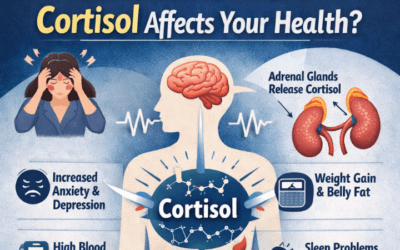What is Trimethylglycine(TMG)?
Trimethylglycine (TMG), also known as betaine, is a naturally occurring compound derived from choline. It acts as an osmoprotectant and a methyl donor in the body, supporting cellular hydration and methylation processes. Trimethylglycine benefits in the conversion of homocysteine to methionine, helping reduce elevated homocysteine levels, a known risk factor for conditions such as heart attack, stroke, cancer, mood disorders, Alzheimer’s disease, osteoporosis, diabetes, chronic kidney disease, macular degeneration, pregnancy complications, and cognitive decline. It is found in foods like beets, spinach, and whole grains.
Why It’s Important?
1. Homocysteine Reduction
Elevated homocysteine levels are linked to heart attack, stroke, cancer, mood disorders, Alzheimer’s disease, osteoporosis, diabetes, and cognitive decline. TMG trimethylglycine has been shown to lower homocysteine, especially in individuals with genetic variations like MTHFR mutations.
2. Liver Health
Betaine trimethylglycine protects against fatty liver disease by promoting lipid metabolism and reducing liver fat accumulation. It supports the liver’s detox pathways and may prevent hepatic steatosis, especially in those with alcohol-related liver stress or obesity.
3. Osmoprotective Effects
TMG acts as an osmolyte, helping cells maintain hydration and structural integrity under stress (e.g., high salinity, dehydration, or heat). This is vital for kidney and liver cells, which experience osmotic stress frequently.
4. Cognitive and Neurological Health
Through its role in methylation, TMG supports neurotransmitter production (e.g., serotonin, dopamine). It helps protect against neurodegeneration, the progressive loss of structure or function of neurons, by promoting healthy homocysteine metabolism.
5. Genetic Support (e.g., MTHFR)
Individuals with MTHFR polymorphisms may have impaired folate metabolism and higher homocysteine. TMG offers an alternative methylation route, bypassing certain folate pathway limitations.
6.Anti-inflammatory Potential
By lowering homocysteine and enhancing methylation, TMG also helps modulate inflammatory pathways. This could offer benefits in metabolic syndrome and autoimmune conditions.
The Link Between TMG and B Vitamins
Trimethylglycine (TMG) plays a synergistic role with B vitamins, particularly folate (B9), B12, and B6, in homocysteine metabolism. Elevated homocysteine is a known risk factor for cardiovascular disease and cognitive decline. Both TMG and Vitamin B Complex contribute methyl groups necessary for the remethylation of homocysteine to methionine, a critical metabolic pathway.
According to a study published in the American Journal of Clinical Nutrition, TMG supplementation significantly lowered plasma homocysteine levels, especially when dietary folate was inadequate. Additionally, a 2002 study in the European Journal of Clinical Nutrition noted that TMG reduced homocysteine independently but worked more effectively alongside folate and B12. Moreover, individuals with MTHFR gene variants, which impair folate metabolism, may particularly benefit from TMG and active B vitamin forms to support methylation pathways.
Benefits of Including TMG in B Vitamin Supplements
Complements B Vitamins in Homocysteine Regulation
- B6, B12, and folate are crucial in lowering homocysteine via the remethylation and transsulfuration pathways.
- TMG provides an alternative methylation pathway via the enzyme betaine-homocysteine methyltransferase (BHMT), which remethylates homocysteine to methionine.
- This redundancy is particularly beneficial for individuals with MTHFR gene mutations or impaired folate metabolism.
Enhances Overall Methylation Capacity
Methylation is required for:
- DNA repair
- Neurotransmitter synthesis
- Detoxification
- Hormone regulation
Including TMG in a B complex improves methylation efficiency, particularly when methylated forms of B vitamins (like methylfolate, methylcobalamin) are also included.
Supports SAMe Production (Mood, Brain Health)
SAMe (S-adenosylmethionine) is synthesized from methionine and ATP.
- TMG + B vitamins = increased methionine → increased SAMe.
- SAMe is vital for:
- Neurotransmitter production (dopamine, serotonin)
- Mood regulation (used therapeutically in depression)
- Cognitive health and focus
TMG supports the B-vitamin–SAMe axis, enhancing the nootropic (a substance that enhances cognitive functions like memory, focus, and mental clarity) and mood-balancing effects of B complex supplements.
Cardiovascular Support through Synergy
- Elevated homocysteine is a risk factor for heart disease and stroke.
- B6, B12, and folate help reduce homocysteine.
- TMG provides a backup methylation route, especially valuable when folate/B12 metabolism is impaired.
- This multi-pathway reduction offers stronger protection against endothelial damage,the injury or dysfunction of the inner lining of blood vessels, which can lead to atherosclerosis.
Improves Liver Function and Fat Metabolism
- B vitamins are essential for liver detoxification (Phase 1 and Phase 2).
- According to the CDC, approximately 4.5 million U.S. adults aged 18 and older have been diagnosed with fatty liver disease. TMG supports liver health by aiding in the metabolism and export of lipids, helping to prevent fat buildup in the liver.
- TMG aids in the methylation of choline, which is essential for phosphatidylcholine production, a key molecule in fat transport and liver health.
In B vitamin formulas aimed at detox support, TMG boosts hepatic function and protects against steatosis.
Protects Against Age-Related Cognitive Decline
- B12 and folate deficiencies are linked to cognitive decline and dementia.
- TMG, by supporting methionine and SAMe synthesis, aids in preserving:
- Brain methylation patterns
- Neurotransmitter levels
- Neuronal membrane integrity
Neurobiology of Aging (2005) highlights the protective role of methyl donors (like TMG and B vitamins) in age-related cognitive decline.
Summary: Why Include TMG in B Vitamin Supplements?
| Benefit | B Vitamins Alone | B Vitamins + TMG |
|---|---|---|
| Homocysteine reduction | Moderate | Enhanced |
| Methylation support | Required | Strengthened |
| Cognitive & mood support | Some | More robust |
| SAMe production | Limited | Boosted |
| Liver detox/fat metabolism | Supportive | Stronger |
| Effective for MTHFR | Not always | Reliable backup |
How to Choose a Quality B Vitamin Supplement with TMG?
When choosing a quality Vitamin B supplement with TMG, look for bioactive (methylated) forms like methylfolate (L-5-MTHF) and methylcobalamin, which support optimal methylation, especially for those with MTHFR gene variants. Avoid synthetic folic acid and opt for products free of additives and allergens. For a physician-formulated, science-backed option, try Dr. David Bilstrom’s methylated vitamin B complex called “MTHFR Methyl B Complex“, which combines all essential 8 B vitamins in their most bioavailable forms, plus TMG, for optimal energy, mood, liver function, and methylation support. Clean, potent, and made for real results, your health deserves this level of care.
FAQs
What makes this B Complex different from regular B vitamin supplements?
Our formula uses methylated (active) forms of B vitamins—like methylfolate and methylcobalamin—which your body can use immediately. Unlike synthetic forms (like folic acid), these support optimal methylation, energy, mood, and detox pathways—especially important for those with MTHFR gene variants.
Why is TMG included in this supplement?
TMG (Trimethylglycine) supports healthy homocysteine levels, boosts liver function, and enhances methylation, working synergistically with B vitamins. It’s particularly valuable for people with compromised methylation or increased detox needs.
Is this supplement suitable for people with MTHFR mutations?
Yes. It’s specifically designed for those with MTHFR gene variants, providing all essential B vitamins in their most bioavailable methylated forms, along with TMG to further support methylation and detoxification.
Are there any allergens, fillers, or artificial ingredients?
No. Dr. Bilstrom’s formula is crafted to be clean, pure, and physician-grade—free from gluten, dairy, soy, GMOs, and synthetic additives. It’s designed with sensitivity and efficacy in mind.








